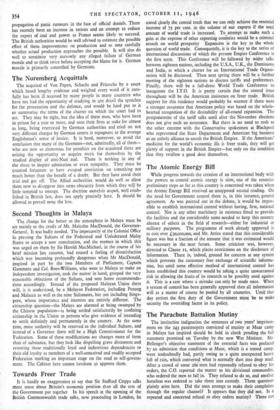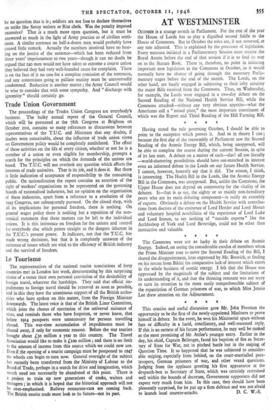The Parachute Battalion Mutiny
The instinctive indignation the sentences of two years' imprison- ment on the 243 paratroopers convicted of mutiny at Muar camp in Malaya has inspired should be held in check pending the full statement promised on Tuesday by the new War Minister. Mr. Bellenger's objective statement of the essential facts was prefaced by an admission that conditions at Muar, which is a tented camp, were undoubtedly bad, partly owing to a quite unexpected heavy fall of rain, which converted what is normally dust into deep mud. After \a crowd of some 266 men had repeatedly refused to obey his orders, the C.O. reported the matter to his divisional commander, who ordered the men to fall in. They refused to do so, and another battalion was ordered to take them into custody. Three questions plainly arise here. Did the men attempt to make their complaints through the regular channel? It appears that they did not. Is a repeated and concerted refusal to obey orders mutiny? There can be no question that it is ; soldiers are not free to declare themselves on strike like Savoy waiters or Ritz chefs. Was the penalty imposed excessive? That is a much more open question, but it must be answered as much in the light of Army practice as of civilian senti- ment. A similar sentence on half-a-dozen men would probably have caused little remark. Actually the numbers involved have no bear- ing on the justice of the sentence—which has been reduced from three years' imprisonment to two years—though it can no doubt be argued that 240 men would not have taken so extreme a course unless they believed they had very well-founded cause for complaint. There is on the face of it no case for a complete remission of the sentences, and any contentions going to palliate mutiny must be unreservedly condemned. Reduction is another matter ; the Army Council would be wise to consider that with some sympathy. And "discharge with ignominy" should certainly go.































 Previous page
Previous page